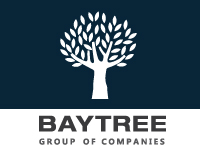CA
ON
캐나다 공인 컨설턴트 - 한인크레딧 컨설팅
전화: 416-897-8438
1 High Meadow Place, Unit 2 North York, ON

홍이표치과
전화: 647-985-0456
9625 Yonge St #4, Richmond Hill, ON Toronto, ON
1.jfif)
한인 시니어 탁구협회
전화: 647-209-8933
1100 Petrolia Rd Toronto, ON
4.jpg)
놀부 - 한식/일식/중식
전화: 416-221-4700
3 Elmhurst Ave, North York, ON

골프 싱글로 가는길
전화: 647-291-2020
115 York Blvd Richmond Hill Toronto, ON

대형스크린,LED싸인 & 간판 - 대신전광판
전화: 416-909-7070
4065 Chesswood Drive Toronto, ON

싸인건설
전화: 416-909-7070
4065 Chesswood Dr. North York, ON
0.jfif)
럭키조경 & 나무자르기
전화: 647-564-8383
4699 Keele St. Unit 218 Toronto, ON

행복부동산 -수잔정 Home Standards Brickstone Real
전화: 647-866-7878
180 Steeles Ave W Unit 30, Thornhill, ON

변호사 정찬수 법률사무소
전화: +82 2-536-1144
서울특별시 서초구 서초동 Toronto, ON
1.jfif)
1004열쇠
전화: 416-895-1004
4 Blakeley Rd. Toronto, ON

준비된 바이어 그룹 , BAYTREE 이너써클
전화: 416-226-5999
7030 Woodbine Ave. Suite 103 Toronto, ON

It would be a place where all the visitors including me share the life stories and experiences through their activities,especially on life as a immigrant.
Why don't you visit my personal blog:
www.lifemeansgo.blogspot.com
Many thanks.
블로그 ( 오늘 방문자 수: 84 전체: 267,647 )
미쇠고기수입에 대한 대통령 국민 담화
lakepurity
2008-05-23
In S. Korea, Regrets and Assurances On U.S. Beef
President Acknowledges Fear But Does Not Reinstate Ban
한국의 대통령, 미국산 쇠고기 수입에 따른, 유감과 국민들의 광우병에 대한 우려를 잘 알고 있지만, 다시 수입 금지는 없을것이라고,확고한 의지 표명
도쿄,5월22일-미국산 쇠고기수입에 대한 한국소비자들의 걱정이 최고조에 달하고,이로인해 새로 출범한 대통령의 통치에 치명적 결과를 오게 하는 원인이 되고 말았다.
이번 상처와 치유와 미국과의 자유무역 협정체결을 맺기위한 노력의 일환으로 이명박 대통령은 목요일 대 국민 담화에서, "쇠고기수입에 대한 국민들의 우려를 깊이 이해 하는데 부족했던 과오를깊이 느끼고 있읍니다"라고 사죄 했읍니다.
정부가 귀를 기울여 국민들의 우려와 의견을 경청하는데 충분치 못했음을 인정합니다.
대통령으로서 저는 국민들의 가슴깊숙히 서려있는 우려를 무시한 정부 처사에 대해 국민들의 질책을 겸허히 받아 들이겠읍니다"라고 전국에 생방송된 담화발표에서 사죄했읍니다.
과거 큰 기업체의 CEO출신으로, 백만장자이면서, 일명 불도져하는 별명이 붙어있는 이대통령의 이번 발표는 모두가 의외로 받아 들이고 있다. 그는 작년 12월 선거에서 압승을 거두고 당선 되였지만, 지난 수주 동안에 미국산 쇠고기 수입에 따른 국민들의 우려 때문에 그의 인기도는 바닥을 해메고 있는 실정이다.
대통령은 또한 지난 12월 19일 대선에서 참패한 야당이 이번 사건을 과장포장하여 국민들을 현혹하여, 정부를 약화 시킬려고한 의도를 질타 하기도 했읍니다. 야당은 사회적 소요를 야기시키는 , 정치적 관점에서 보지 말것을 당부 하기도 했읍니다.
이상은 와싱턴 포스트 기사내용입니다.
TOKYO, May 22 -- U.S. beef is scaring the daylights out of South Korean consumers and triggering a leadership crisis for the country's fledgling government.
In an attempt to contain the damage and salvage a free trade deal with the United States, President Lee Myung-bak apologized to South Koreans on Thursday for his "deeply regrettable" failure to understand what the fuss over beef is all about.
"The government's efforts to listen to and understand public opinions have been insufficient," Lee said in a nationally televised speech. "I humbly accept the point that the government neglected to fathom the people's mind. I feel sorry."
It was a stunning show of contrition for Lee, a multimillionaire former businessman whose nickname is "The Bulldozer." He was elected in a landslide in December, but his popularity has sagged in recent weeks, primarily because of widespread alarm over the purported dangers of eating U.S. beef.
Lee's penitence is a telling measure of how large the importation of U.S. beef now looms in South Korea -- as a consumer, economic and political issue -- and of how ineptly his government has dealt with it. Nevertheless, Lee did not give in to popular pressure to reinstate a ban and called for parliament to approve the free trade agreement.
South Korea, an Asian country with an outsize appetite for meat, was the world's third-largest importer of U.S. beef until December 2003, when a Canadian-born dairy cow slaughtered in Washington state tested positive for mad cow disease, the first case in the United States.
Seoul officials immediately halted all U.S. beef imports. The ban, wildly popular with South Korean cattle producers, remained substantially in place until April 18. That's when Lee -- just hours before he was to meet President Bush in Washington to discuss a much-delayed free trade deal -- lifted it and unwittingly started the populist consumer revolt that led to Thursday's televised mea culpa.
By allowing U.S. beef into his country again, Lee had hoped to remove a major obstacle to congressional approval of the trade agreement, which experts say would increase South Korea-U.S. trade by about $20 billion a year.
Lee's unilateral decision quickly backfired, as South Koreans' long-standing concern about U.S. beef turned into hysteria.
Within a few days, a television news program aired thinly sourced -- and later, scientifically refuted -- claims that nearly all Koreans carry a gene making them far more susceptible to mad cow disease than Americans. Rumors spread that school lunch programs would soon be the dumping ground for cheap and potentially deadly American beef.
By early May, despite repeated attempts by the government to knock down the alarmist reports and rumors, protests against U.S. beef had become a fashionable cause for the young.
By the thousands, they took to the streets for candlelight vigils in Seoul, the capital, and other cities. Internet postings grew increasingly jittery.
As the public's anger grew, Lee's initial reaction was annoyance. "You don't have to eat American beef if you don't like it," he said.
The president also complained that opposition parties, which he had walloped in the Dec. 19 election, were exploiting the issue to weaken his government.
"Parties should not approach this issue from a political perspective, causing social unrest," he said this month.
He assembled government ministers and assorted experts to explain on TV that U.S. beef was now safe, that the chances of contracting mad cow disease were infinitesimal and that the financial benefits of a free trade agreement would put money in the pockets of all South Koreans.
But as Lee conceded Thursday, he and his government did not listen carefully to the public. "Health can't be exchanged for anything," he said.
He promised that his government would upgrade food safety standards and "halt U.S. beef imports if any health-threatening circumstances occur in the United States."